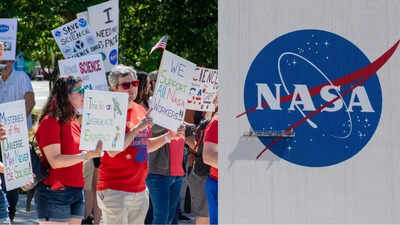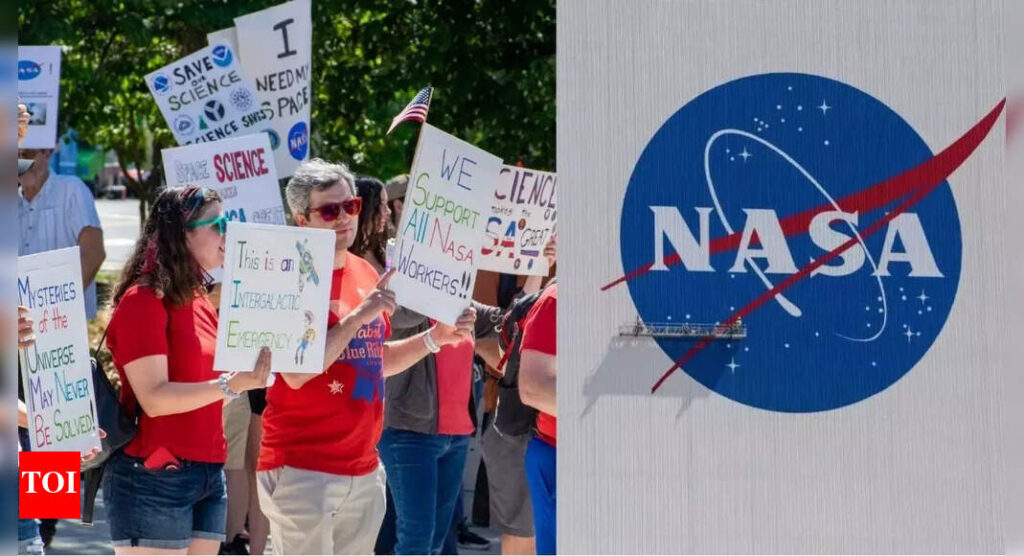
Nearly 20% of NASA’s workforce — approximately 3,870 employees — have exited the agency following major funding cuts under the Trump administration’s plan to downsize federal agencies. The layoffs stem from the Deferred Resignation Program, with officials describing the move as an effort to make NASA “leaner and more efficient.” The decision has triggered widespread backlash from scientists, engineers, and space policy experts, who warn of serious risks to the agency’s future missions. Nationwide protests erupted over the weekend, with current and former employees calling the move a direct threat to America’s leadership in space.
NASA fires thousands under federal downsizing drive
The second round of the Deferred Resignation Program, which closed late Friday, saw roughly 3,000 resignations on top of 870 from the first wave of departures after Trump returned to office. Including regular attrition, NASA’s workforce has shrunk from over 18,000 to around 14,000, marking a 20% reduction. Those resigning have been placed on administrative leave until their official exit. The move was orchestrated under the Department of Government Efficiency, currently led by Elon Musk.NASA insists that safety remains a top priority, yet internal experts are raising alarms about the loss of institutional knowledge and highly skilled personnel. With Mars and Moon missions central to the Trump administration’s ambitions, critics argue these cuts threaten mission readiness. Former NASA officials and space industry leaders are questioning the agency’s capacity to manage complex space programs in the coming years.
Protests erupt over “brain drain” and loss of legacy
Protests have broken out in several cities including Houston, Washington D.C., and Cape Canaveral, where current and former NASA staff, union representatives, and supporters gathered to oppose the mass layoffs. A letter titled The Voyager Declaration, signed by hundreds of former employees, warns that irreplaceable expertise is being lost at a critical moment for U.S. space exploration. “This is not streamlining,” one protestor said, “this is sabotage.”
Doubts over leadership as Trump’s NASA pick falters
Adding to the turmoil, NASA is still being led by an acting administrator after tech billionaire Jared Isaacman, Trump’s initial nominee backed by Elon Musk, was rejected for the role. In the absence of permanent leadership, critics argue that the agency is navigating its most challenging transformation without a clear long-term vision or stable command structure.











